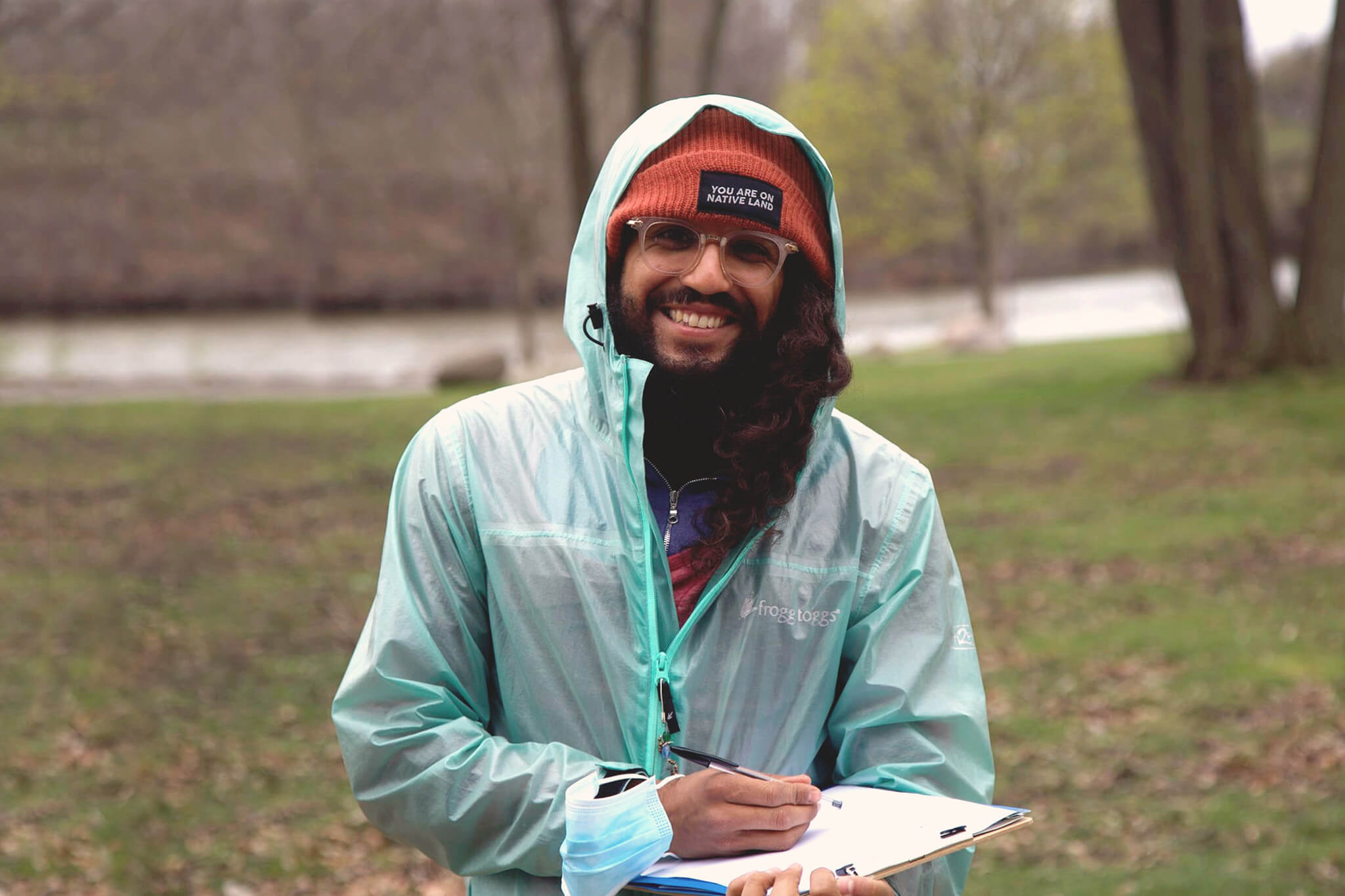
A recent Community Foundation for Southeast Michigan grant helped the Ecology Center in Ann Arbor engage citizens in collecting data on contamination in the Huron and Rouge River watersheds. Angler Antonio Rafael volunteered to assist with the project. “I’ve got a lot of Indigenous ancestry,” he says. “For me, fishing is more than a sport or recreational activity. It’s something that I do to build a relationship with the water and to find a more ethical source for my food.”
Clean, healthy water and air are key to our quality of life in southeast Michigan. Yet, many residents in our region live with pollution that can endanger their health.
The Community Foundation for Southeast Michigan has tapped its unrestricted endowment, known as the Southeast Michigan Forever Fund, to support studies that explore these ties between our environment and health. The results can help advocates pinpoint solutions and catalyze actions that will make our seven-county region a desirable place to live, work and play for everyone.
A recent grant to the Ecology Center, a nonprofit in Ann Arbor that works to ensure healthy people and a healthy planet, is an example. The Community Foundation awarded the organization $100,000 over two years to educate “citizen scientists” on how to conduct testing for PFAS and other toxic chemicals. Once trained, these volunteers will conduct community-driven research on surface water, drinking water, air and wildlife throughout the Huron and Rouge River watersheds.
The Community Foundation grant was leveraged in collaboration with funding from partners including the Wege Foundation, the Erb Family Foundation, the C.S. Mott Foundation and others.
“The Ecology Center’s long-term goals — that southeast Michigan communities are protected from hazardous chemicals, including PFAS, in their environment, and that impacted communities have greater agency and involvement over their community and ecological health outcomes — are important ones,” says Greg Yankee, director of Arts and Environmental Initiatives at the Community Foundation. “It seems that more is understood almost every month about the correlation between health outcomes and environmental factors.”
‘Forever chemicals’ in our water
PFAS, also known as “forever chemicals” or per- and polyfluoroalkyls, are man-made substances that have been used since the 1940s to manufacture nonstick cookware, water-repellent clothing, stain-resistant fabrics and carpets, food packaging and a variety of other products.
During production and use, they can migrate into the soil, air, water and wildlife. Scientific studies have shown that exposure to PFAS may be linked to harmful health effects in humans and animals, according to the Agency for Toxic Substances and Disease Registry.
Those effects can include certain types of cancers, developmental and reproductive harm, immune system suppression, and less-effective vaccine responses, says Ecology Center Toxics Campaign Director Erica Bloom.
It’s a global problem that requires collaboration between government at all levels, private industry, philanthropy, engaged citizens and advocacy organizations. While the chemicals can never be fully eradicated, they can be reduced through cleanup and prevention measures. In addition, identifying where the chemicals are concentrated can help guide outreach and education among anglers, as the Ecology Center project does, Bloom says.
“When we talk about contamination, you have to be sensitive that, for some people, it’s not as easy as just, ‘Stop fishing,’ ” she says, noting fishing can be an affordable, vital source of protein for some residents and a key component of cultural heritage among native communities.
“We don’t tell people to completely stop fishing,” Bloom says. “We tell people that they need to be aware. We give them the information and data so they can make choices for themselves about what they want to do with their health and their fish consumption.”
Community Foundation grant supports testing
Antonio Rafael grew up fishing with his dad. The pair would take their small aluminum boat and fish for walleye on the scenic Straights of Lake Erie.
Rafael also grew up with asthma.
His family lived in southwest Detroit, in the shadow of oil refineries and steel mills, where industrial facilities that emit toxic chemicals sometimes border schools and senior centers. Rafael experienced firsthand the impact of pollution on his health.
Today, as an adult, he advocates for environmental justice and leads Black to the Land — a coalition of Black, Brown, and Indigenous nature enthusiasts who are intent on helping BIPOC people actively engage in meaningful outdoor experiences. He’s also an avid gardener and fisherman, who recently volunteered as a community researcher in the Ecology Center’s PFAS project funded, in part, by the Community Foundation.
“To have citizens engaged in citizen science is a really important and special thing,” Rafael says. “A lot of times, the action of science is disconnected from communities who live and work and eat and fish in these areas.
“To have communities who are directly impacted participate in collecting data, it can touch more lives, make more people aware and be more justice-oriented.”
This story first appeared in the Summer 2023 REPORT Newsletter
